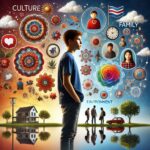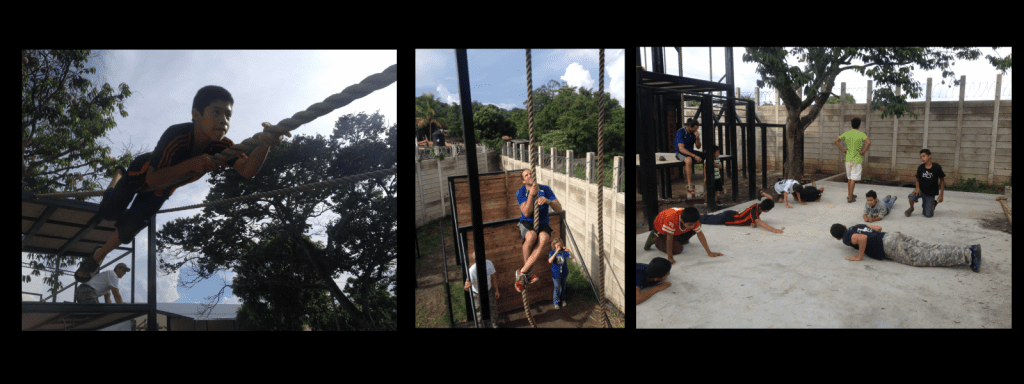Introduction
Life transitions are pivotal moments that influence personal identity. As individuals progress through different stages of life—adolescence, adulthood, career changes, parenthood, retirement—their sense of self often shifts and evolves. These transitions can be challenging, but they also present opportunities for growth and self-discovery.
In this article, we will explore how key life transitions impact personal identity and provide practical tips on navigating these changes to maintain a strong sense of self during periods of transformation.
Adolescence: A Critical Period for Identity Formation
- The Search for Independence and Self-Discovery:
- Identity vs. Role Confusion: Adolescence is a time of exploration and self-discovery. Teens often experiment with different roles, beliefs, and behaviors as they seek to establish their own identity separate from their family. According to Erik Erikson’s theory of psychosocial development, adolescence is characterized by the conflict between identity and role confusion.
- Influence of Peers and Social Groups: During adolescence, peer groups play a significant role in shaping identity. Friendships provide a sense of belonging and influence personal interests, values, and behaviors. However, peer pressure can also lead to identity confusion if teens feel pressured to conform to group norms rather than stay true to themselves.
- Practical Tips for Navigating Identity Formation During Adolescence:
- Encourage Open Exploration: Adolescents should be encouraged to explore different interests, hobbies, and social groups without fear of judgment. This allows them to discover their passions and values.
Focus on Self-Awareness: Practicing self-reflection through journaling or mindfulness can help teens better understand their feelings and preferences, allowing them to make more authentic decisions about their identity.

Adulthood: Establishing a Stable Identity Amid Responsibilities
- Career Choices and Professional Identity:
- Impact on Identity: Career decisions often play a central role in adult identity. Professional success, work environment, and career goals influence how individuals view themselves. A rewarding career can enhance self-esteem and provide a sense of purpose, while career dissatisfaction may lead to identity conflict or a sense of unfulfillment.
Mid-Career Transitions: Career changes, whether voluntary or forced (e.g., layoffs), can create identity shifts. A person who strongly identifies with their job may experience an identity crisis when faced with job loss or career transitions.
- Family and Relationship Dynamics:
- Identity and Parenthood: Becoming a parent can profoundly reshape personal identity, as individuals often redefine themselves in relation to their roles as caregivers. Parenthood requires balancing individual goals with family responsibilities, which can lead to a shift in values and priorities.
- Marriage and Partnership: Relationships, particularly long-term partnerships and marriage, also shape identity. Partners may adopt shared values and goals, influencing each other’s sense of self. Maintaining individuality while being part of a couple is essential for preserving a balanced identity.
- Practical Tips for Navigating Identity in Adulthood:
- Embrace Professional Growth: Career transitions should be viewed as opportunities for growth and self-reinvention. Adults can take the time to reflect on what truly aligns with their skills, values, and passions and seek career paths that reflect their evolving identity.
Set Personal Goals Beyond Career and Family: While career and family are important, it’s essential to cultivate personal interests and hobbies that foster individuality. Engaging in activities outside of work and home responsibilities promotes a more balanced and fulfilling identity.
Life Transitions in Later Years: Redefining Identity in Retirement
- Retirement and Shifting Identity:
- Letting Go of Professional Identity: For many, retirement marks a major transition as individuals let go of their professional identity. After years of defining oneself through work, this shift can create a void and lead to feelings of loss or uncertainty.
- Rediscovering Purpose: Retirement also offers the opportunity to rediscover passions, pursue long-neglected hobbies, and engage in new activities. Many retirees find fulfillment in volunteer work, mentorship, or learning new skills.
- Practical Tips for Navigating Identity in Later Life:
- Embrace Lifelong Learning: Retirement doesn’t have to mean the end of growth. Taking up new hobbies, exploring different fields of study, or getting involved in community activities can reignite a sense of purpose.
- Focus on Legacy: Retirement is also a time to reflect on the legacy you want to leave behind. Engaging in activities that contribute to family, community, or society can provide a sense of fulfillment and reinforce a positive sense of identity.
Key Considerations for Navigating Identity Transitions
- Accept Change as a Natural Part of Life:
- Identity is not static; it evolves with life experiences and transitions. Embracing change rather than resisting it allows individuals to grow and adapt to new phases in life.
- Stay True to Core Values:
- While external circumstances may change, maintaining core values and principles helps individuals stay grounded. Reflect on what matters most to you and use these values as a guide during life transitions.
- Practice Self-Compassion:
- Life transitions can be emotionally challenging. Practicing self-compassion and acknowledging the difficulties of change allows individuals to navigate identity shifts with kindness and patience.
Conclusion
Life transitions—whether adolescence, career changes, or retirement—play a significant role in shaping personal identity. While these transitions can be challenging, they also offer opportunities for self-discovery and growth. By embracing change, staying true to core values, and practicing self-reflection, individuals can navigate identity transitions with resilience and maintain a strong sense of self throughout all stages of life.



